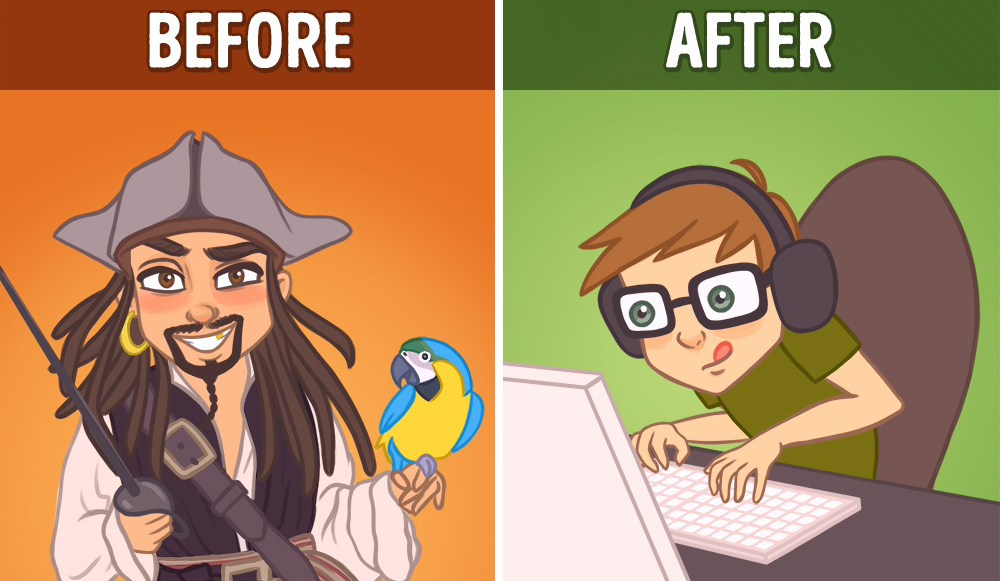The internet changed fiction dramatically, infusing new dynamics into storytelling and reader engagement. With the rise of digital platforms, the impact of internet on literature has transformed how authors connect with audiences, often prioritizing speed and virality over depth and nuance. Social media’s influence on books can’t be understated, as it reshapes readers’ preferences and expectations, affecting both what gets published and how stories are told. In this digital age and storytelling revolution, the blurred lines between fiction vs reality in the internet age challenge traditional narrative forms, compelling writers to adapt in unprecedented ways. As we navigate this evolving literary landscape, it’s essential to explore how technology affects writing and the implications for the craft itself.
The digital landscape has fundamentally shifted the art of storytelling, affecting not only how narratives are created but also how they resonate with audiences. In this era of instant connectivity, the role of traditional literature has been redefined, prompting discussions on the broader implications of a tech-driven society on creative expression. The symbiotic relationship between digital communication and literature often leads to a renaissance of ideas yet raises concerns about the authenticity of emotional engagement. As authors grapple with these changes, the new paradigms of writing demand an understanding of the complexities of reader interactions and the nuances inherent within this modern storytelling context. Ultimately, examining these transformations offers vital insights into how our experiences as readers and writers evolve in response to the internet’s pervasive reach.
The Impact of the Internet on Fiction
The internet has dramatically transformed the landscape of fiction writing, steering authors into a public arena where their work is subjected to immediate feedback from a vast audience. Unlike past generations, where the interaction between writer and reader was often delayed and intimate, today’s authors face an environment in which every word can be scrutinized and influenced by the whims of social media. This shift means that writers now grapple with the challenge of crafting narratives that not only resonate on a personal level but also cater to an ever-evolving public taste molded by online interactions.
Moreover, the essence of storytelling risks becoming overshadowed by the need for viral appeal. In an age where every click, like, and comment can shift a book’s trajectory, the pressure to conform to popular expectations can stifle the authenticity that fiction once held. Bridging personal truths and universal themes becomes increasingly difficult for writers as they navigate the delicate balance between self-expression and audience approval, leading many to question the very core of what makes fiction meaningful.
Frequently Asked Questions
How has the internet changed fiction writing in the digital age?
The internet has profoundly impacted fiction writing by altering how writers conduct research, interact with their audiences, and approach storytelling. In the digital age, writers have immediate access to vast information, allowing for more detailed and accurate narratives. However, the pressure to cater to public opinion on social media can hinder creative freedom, as authors may feel the need to conform to popular trends, impacting their originality and the exploration of private truths.
What is the impact of the internet on literature and storytelling?
The impact of the internet on literature and storytelling is significant, as it has transformed readers into active participants and audiences rather than passive consumers. This shift often influences literary tastes, shaped by social media trends and viral phenomena, which can overshadow traditional literary criticism. While the accessibility of eBooks and online platforms enhances readership, it can also lead to a devaluation of deep, literary engagements, as quick consumption prevails in the fast-paced digital landscape.
How does social media influence books and fiction today?
Social media profoundly influences modern fiction by shaping the visibility and reception of books. Authors can use these platforms to build audiences, promote their work, and engage with readers directly. However, this dynamic can dilute the focus on complex narratives and challenging themes, as writers may prioritize marketability over depth to align with trending topics. Furthermore, the feedback loop of likes and shares can create a skewed perception of literary value, prompting authors to write for mass appeal rather than exploring deeper emotional truths.
In what ways has technology affected the writing process for authors?
Technology has streamlined the writing process by providing authors with faster research capabilities and new platforms for publishing. Tools such as online archives, digital libraries, and writing software enhance productivity, granting writers access to resources that previously required extensive time and effort to gather. However, the constant connectivity and distractions from the internet also pose challenges, as they can disrupt the immersive states necessary for deep writing and critical thinking.
What are the challenges of fiction versus reality in the internet age?
In the internet age, one major challenge for fiction is navigating the blurred lines between reality and storytelling. The immediate accessibility of information and the prominence of social media can lead readers to expect realism and relatability in narratives, sometimes at the expense of imaginative storytelling. Authors are tasked with maintaining a balance between authenticity and creativity, compelling readers to engage with emotional truths rather than solely factual recounting of events.
How does the digital age affect the emotional depth in storytelling?
The digital age presents both opportunities and challenges for emotional depth in storytelling. While the internet facilitates immediate access to diverse perspectives that can enhance emotional narratives, the prevalence of sensationalism and brevity in online content may encourage superficial engagement. Writers must strive to delve into emotional truths through their characters and plots while competing against the distractions and fragmented attention spans that digital environments often foster.
Are there positive aspects of how the internet has changed fiction?
Yes, there are positive aspects to how the internet has changed fiction. It has democratized publishing and readership by providing platforms for indie authors and promoting diverse voices that traditional publishing routes may overlook. Online communities also foster discussions about books and genres, creating opportunities for writers to receive feedback and support. This connectivity can inspire collaboration and innovation within the literary landscape, ultimately enriching the fiction we read today.
| Key Point | Author | Insight |
|---|---|---|
| Readers have become audiences | Greg Jackson | The internet has shifted readers from private consumers of fiction to collective audiences swayed by social media and public opinion. |
| A time-saver and a time-suck | Scott Turow | While the internet facilitates research and eBook access, it competes for readers’ time and can detract from deep engagement with literature. |
| We lost a major plot device | Jennifer Finney Boylan | The constant connectivity of the internet has diminished storytelling elements centered around characters getting lost or disconnected. |
| A time machine for research | Julie Orringer | Access to online archives has revolutionized historical research for writers, providing context and depth that was previously difficult to obtain. |
| Less time at the library, for better and for worse | Weike Wang | The internet has made research easier but also led to a decline in immersive, leisure reading time. |
| We need emotional truth too | Min Jin Lee | Despite the challenges posed by an internet-driven world, fiction remains crucial for exploring deep emotional truths beyond mere facts. |
| Expanding knowledge | Andrè Aciman | While online content is ephemeral, books provide a lasting understanding of humanity and culture that is often overlooked by younger generations. |
| Some things ‘can only be experienced through face-to-face interactions’ | Yxta Maya Murray | Although the internet aids in research, true human experience and empathy are cultivated through personal interactions. |
Summary
The internet changed fiction in profound ways, transforming readers into audiences and shifting the traditional dynamics of storytelling. With the rise of social media, the private space of reading has been invaded by public opinion, altering how writers approach their craft. While the internet offers vast resources for research and accessibility, it also threatens the depth of engagement that literature requires. As writers navigate this new landscape, the challenge remains to retain the emotional truths that fiction uniquely offers, ensuring that the essence of storytelling continues to thrive despite the distractions of the digital age.



